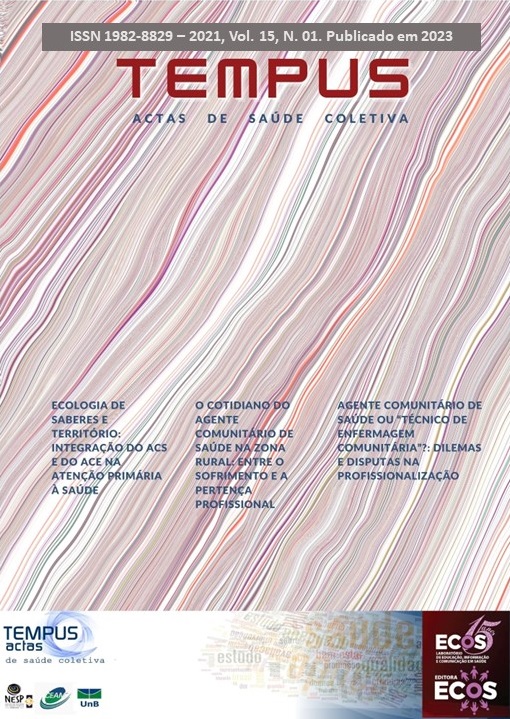Resumo
Não se sabe ao certo a origem da ideia que culminou na existência da função de Agente Comunitário de Saúde (ACS). Há quem atribua a origem da contemporânea ACS à figura do feldsher, um auxiliar médico que surgiu na Rússia Czarista. No Brasil, a função de ACS surgiu na cidade de Jucás, no Ceará, entre 1979-1986, inspirada na experiência canadense e cubana. Há um certo modo hegemônico de olhar essas profissionais e suas ações no campo da produção de saber. Insiste-se em descrever essa profissional como carente de formação técnico-científica e profissional-objeto de avaliação. Poucos trabalhos se dedicam às potencialidades e ao fortalecimento da profissão, com sua identidade particular de liderança comunitária, pertencimento social e produção de vínculo. Este artigo resulta de uma pesquisa a respeito das experiências das ACS, experiência como processo intersubjetivo modelador e qualificador das relações e práticas de cuidado a partir das suas narrativas. Metodologicamente, fomos ao encontro de seis ACS de uma Unidade de Saúde mista da zona norte de São Paulo , a fim de colher e produzir narrativas a respeito dos seus desafios e dilemas no contexto do trabalho em saúde., Inspiradas na ideia de experiência e saber da experiência de Jorge Larrosa, problematizamos sobre as tecnologias de cuidado. Das conclusões, cabe mencionar que o processo formativo tradicional não considera as diferentes camadas de compreensão de mundo e modos de se relacionar que operam como moduladores de relações e práticas. Nesse sentido, ficam invisíveis princípios e valores que determinam a pluralidade e diversidade de formas de pensar e fazer o cuidado.
A Tempus garante critérios rigorosos, por meio de avaliação sistemática. Os autores se responsabilizam pela veracidade e ineditismo do trabalho cabendo a eles a cessão de direitos de publicação à revista. A confiabilidade dos conteúdos e a marca própria de apresentação tem como objetivo uma comunicação personalizada, adaptada aos padrões da revista, na medida em que adota critérios de excelência exigidos por seus usuários e especialistas, considerando os rigores da comunicação científica. Os autores devem especificar sua contribuição individual na concepção, delineamento, execução do trabalho, análise ou interpretação dos dados, redação e aprovação final do manuscrito. Incluir Fontes de financiamento e de apoio logístico das pesquisas. Ao final da submissão do artigo, os autores devem enviar uma declaração de cessão de direitos de publicação à Revista TEMPUS , assinada e no formato PDF (Portable Document Format ): Modelo da declaração de cessão de direitos.
